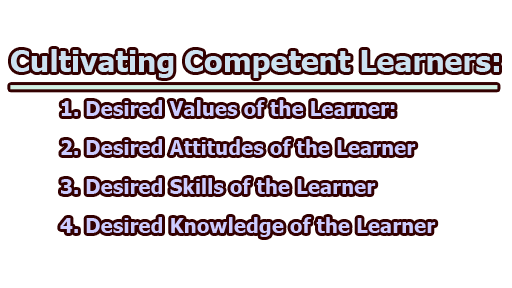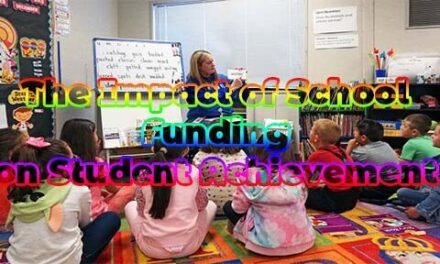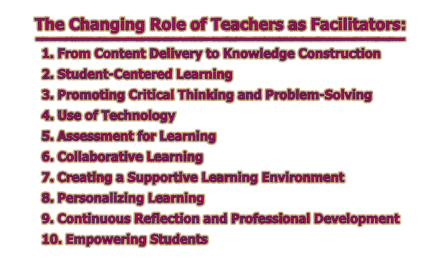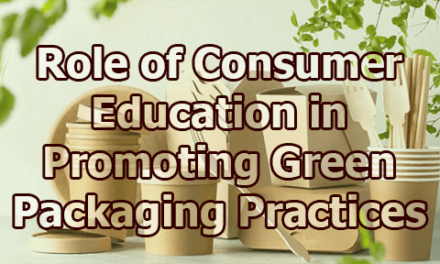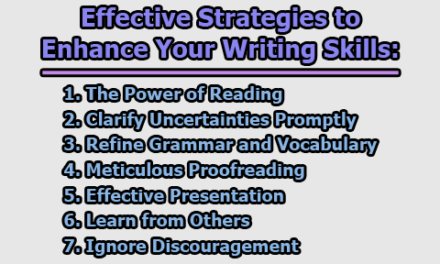Cultivating Competent Learners: Values, Attitudes, Skills, and Knowledge
In the ever-evolving landscape of education, fostering well-rounded individuals equipped to thrive in a complex world has become paramount. To achieve this, educators and institutions focus not only on imparting knowledge but also on nurturing values, attitudes, skills, and knowledge that empower learners to lead meaningful lives and contribute positively to society. Let’s delve into the core components (values, attitudes, skills, and knowledge) that cultivating competent learners:
1. Desired Values of the Learner: Values form the moral compass that guides individuals through life’s challenges. Educators and society at large aspire for learners to embody values such as:
a) Honesty: Honesty is the cornerstone of trust and integrity in both personal and professional relationships. Teaching learners the value of honesty instills the importance of truthfulness and transparency. It lays the foundation for ethical decision-making, ensuring that individuals act with integrity and maintain the trust of others.
b) Enthusiasm: Enthusiasm is the fuel that drives a zest for learning and embracing new experiences. When learners approach their studies and life with enthusiasm, they are more likely to be engaged, curious, and open to exploring new ideas. Enthusiasm ignites the spark of lifelong learning, propelling individuals to seek knowledge and growth.
c) Democracy: A commitment to democratic principles, including fairness, equality, and participation in civic life, is fundamental for responsible citizenship. Learners who understand and value democracy are more likely to actively engage in their communities, advocate for justice, and contribute to the betterment of society.
d) Non-Communalism: Rejecting divisive and prejudiced beliefs in favor of inclusivity and unity is vital for social harmony. Learners who embrace non-communalism promote an environment of acceptance and respect for diversity. They are more likely to foster inclusive communities that celebrate differences rather than perpetuate division.
e) Initiative: Initiative is the ability to take proactive steps and demonstrate leadership when needed. Encouraging learners to develop initiative empowers them to be self-starters and problem solvers. This value cultivates a sense of agency and responsibility, enabling individuals to take action to address challenges and create positive change.
f) Positivity: A positive mindset seeks solutions, embraces challenges, and maintains optimism even in the face of adversity. Learners who value positivity are better equipped to persevere through difficulties and approach setbacks as opportunities for growth. Positivity also contributes to a more constructive and supportive learning environment.
g) Aesthetics: Appreciation for the beauty in art, culture, and the natural world enhances the quality of life. Learners who cultivate aesthetics develop a deeper sense of appreciation for creativity, aesthetics, and the wonders of the world. This value encourages individuals to explore their artistic and cultural interests and find inspiration in the beauty that surrounds them.
h) Humanity: Compassion, empathy, and a commitment to making the world a better place are the hallmarks of humanity. Educating learners about the value of humanity encourages them to care for others, address social issues, and actively participate in efforts to create a more compassionate and just society.
i) Responsibility: A sense of duty and accountability towards one’s actions and their consequences is essential for personal and societal well-being. Learners who internalize responsibility understand the impact of their choices and take ownership of their roles in various contexts, from family and community to global issues.
2. Desired Attitudes of the Learner: Attitudes shape how individuals perceive and interact with the world around them. Desired attitudes include:
a) Personal Beliefs: Personal beliefs are the deeply held convictions and values that guide an individual’s thoughts, actions, and decisions. Encouraging learners to develop positive personal beliefs is instrumental in fostering their moral and ethical development. These beliefs shape their character and influence their behavior in various contexts. Desired personal beliefs may include values such as honesty, kindness, empathy, and responsibility.
- Honesty: Honesty is the foundation of trust and integrity. Instilling a belief in the importance of honesty encourages learners to be truthful and transparent in their interactions with others, fostering trust and ethical behavior.
- Kindness: A belief in kindness promotes empathy and compassion. Learners who value kindness are more likely to engage in acts of goodwill and demonstrate consideration for others’ well-being.
- Empathy: Empathy is the ability to understand and connect with the emotions and perspectives of others. Encouraging learners to believe in the importance of empathy cultivates a sense of shared humanity and promotes positive interpersonal relationships.
- Responsibility: Believing in personal responsibility fosters a sense of duty and accountability. It empowers learners to take ownership of their actions and their impact on their communities and the world.
b) Beliefs Related to Positive Social Norms: Beliefs related to positive social norms encompass the values, principles, and behaviors that contribute to a harmonious and just society. Encouraging learners to adopt these beliefs is essential for responsible citizenship and community well-being.
- Respect for Diversity: Believing in the value of diversity promotes inclusivity and unity. Learners who value diversity are more likely to respect differences in culture, background, and identity, contributing to a more tolerant and accepting society.
- Fairness and Equality: Believing in fairness and equality encourages learners to advocate for justice and equal opportunities. These beliefs promote a society where all individuals have the chance to thrive.
- Civic Engagement: Belief in civic engagement encourages learners to participate actively in their communities and advocate for positive change. It empowers them to take an active role in addressing societal issues and contributing to the betterment of society.
c) Self-Confidence: Self-confidence is the belief in one’s abilities and potential. Nurturing self-confidence in learners is essential for their personal growth and development. A strong sense of self-confidence empowers individuals to pursue their goals, overcome challenges, and make meaningful contributions to their communities.
- Pursuit of Goals: Self-confidence instills the belief that one can set and achieve meaningful goals. Learners with self-confidence are more likely to pursue their passions and ambitions with determination and resilience.
- Resilience: Self-confident individuals are better equipped to bounce back from setbacks and persevere through challenges. This attitude of resilience enables learners to navigate life’s ups and downs with confidence.
- Contribution to Communities: Self-confidence encourages learners to believe in their ability to make a positive impact on their communities and society as a whole. It empowers them to take leadership roles and actively participate in efforts to create a better world.
3. Desired Skills of the Learner: Skills are the practical tools that enable learners to navigate life successfully. Desirable skills encompass:
a) Critical thinking: Critical thinking is the cornerstone of informed decision-making and problem-solving. It involves analyzing information, evaluating arguments, and making reasoned decisions. Learners who hone their critical thinking skills are better equipped to navigate complex issues, discern credible sources, and approach challenges with a logical and analytical mindset.
b) Creative thinking: Creative thinking is the spark that ignites innovation and generates fresh solutions. Encouraging learners to think “outside the box” fosters a spirit of creativity and inventiveness. It empowers individuals to approach problems with originality, fostering a culture of innovation in both personal and professional spheres.
c) Problem-solving: Problem-solving is a practical skill that enables individuals to effectively address challenges and find solutions. It involves assessing situations, identifying issues, and developing strategies for resolution. Proficient problem solvers are assets in any context, as they can navigate obstacles and contribute to constructive outcomes.
d) Decision-making: Decision-making is about making sound choices based on available information and personal values. Learners who develop strong decision-making skills are better equipped to make choices that align with their goals and ethical principles. These skills are essential for responsible and ethical citizenship.
e) Communication: Effective communication is the linchpin of successful interactions and relationships. It involves expressing ideas clearly, actively listening, and engaging in productive dialogue. Proficient communicators can convey their thoughts, empathize with others, and collaborate effectively, bridging gaps and fostering understanding.
f) Self-management: Self-management encompasses setting goals, managing time, and maintaining personal well-being. Learners who cultivate self-management skills are better equipped to organize their lives, set and pursue meaningful objectives, and strike a healthy balance between their personal and academic/professional responsibilities.
g) Collaboration: Collaboration is a critical skill for the modern world, where teamwork often drives success. It involves working harmoniously with others to achieve common goals. Learners who excel in collaboration understand the value of diverse perspectives and contributions, enabling them to participate effectively in group endeavors.
h) Global citizenship: In an increasingly interconnected world, global citizenship is an essential skill. It entails understanding global issues, advocating for positive change, and cooperating across borders. Global citizens are informed about international challenges and are committed to contributing to solutions that benefit humanity as a whole.
i) Employability: Employability skills encompass a range of qualities and competencies that enhance job prospects and career success. These skills include adaptability, resilience, teamwork, communication, and a willingness to learn. Learners who possess strong employability skills are well-prepared for the demands of the job market.
j) Foundational skills: Foundational skills, such as literacy, numeracy, and digital literacy, serve as the building blocks for acquiring other competencies. Literacy and numeracy are essential for understanding and applying knowledge, while digital literacy is crucial in an increasingly technology-driven world.
4. Desired Knowledge of the Learner: Knowledge is the bedrock upon which competencies are built. Learners are expected to acquire:
a) Disciplinary knowledge: Disciplinary knowledge refers to in-depth knowledge of subject-specific content. It is the core information and principles that learners acquire in subjects like mathematics, science, literature, history, and the arts. Disciplinary knowledge provides a solid grounding in specialized fields, allowing learners to understand the fundamental concepts and theories that underpin various disciplines.
b) Interdisciplinary knowledge: Interdisciplinary knowledge is the ability to connect concepts across different disciplines. It encourages learners to see the interconnectedness of knowledge and apply insights from one field to another. This holistic perspective promotes creativity and innovation, as learners draw upon diverse sources of information to solve complex problems and make informed decisions.
c) Epistemic knowledge: Epistemic knowledge involves understanding specialized knowledge within particular fields. It goes beyond the surface-level content and delves into the methodologies, processes, and ways of thinking that experts use in a given discipline. Epistemic knowledge enables learners to grasp how experts in a field think, solve problems, and generate new knowledge. It encourages a deeper appreciation for the intricacies of various domains.
d) Procedural knowledge: Procedural knowledge is the practical aspect of knowledge, involving knowing how to perform specific tasks systematically and effectively. This type of knowledge is essential for the application of theory in real-world scenarios. It encompasses a range of skills and techniques, from problem-solving strategies to laboratory procedures to artistic techniques. Procedural knowledge empowers learners to translate their theoretical understanding into practical action.
The acquisition of these four types of knowledge is integral to the development of competent and well-rounded individuals:
- Comprehensive Understanding: Disciplinary knowledge ensures that learners have a thorough understanding of the subject matter within their chosen field or fields of study. It provides them with the expertise needed to excel in academic and professional contexts.
- Cross-Disciplinary Thinking: Interdisciplinary knowledge encourages learners to think critically and creatively by drawing connections between different domains of knowledge. This skill is particularly valuable in addressing complex, multifaceted challenges that require a holistic perspective.
- In-Depth Expertise: Epistemic knowledge allows learners to delve into the methodologies and processes that experts use within their fields. This depth of understanding fosters a sense of mastery and encourages lifelong learning and research.
- Practical Application: Procedural knowledge equips learners with the practical skills and abilities required to put their knowledge into action. Whether it’s conducting experiments, creating art, or solving problems, procedural knowledge ensures that learners can apply what they know in real-world scenarios.
In conclusion, education today is more than the transmission of facts; it aims to nurture values, attitudes, skills, and knowledge that produce competent and well-rounded individuals. By instilling these elements, educators and institutions are better-preparing learners for the complex and interconnected challenges of the 21st century.

Library Lecturer at Nurul Amin Degree College

